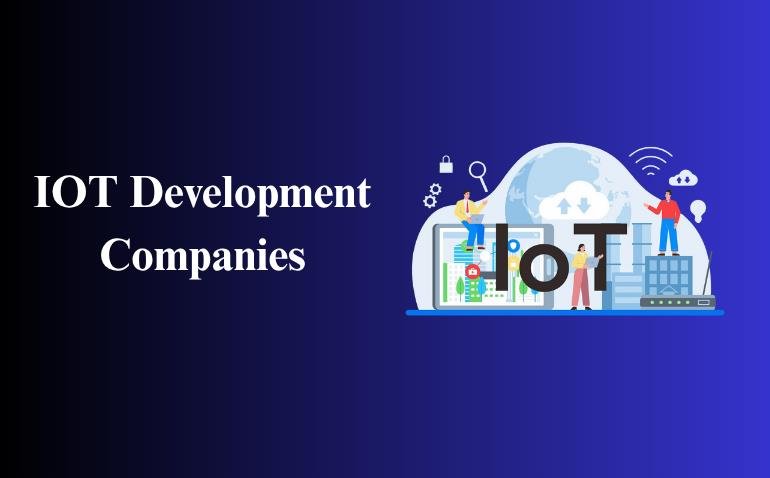Table of Contents
Top IoT development companies
1. Softeq Development Corporation
Overview & Profile
Headquartered in Houston, Texas, Softeq Development Corporation was founded in 1997. It serves global clients and focuses on hardware, embedded systems, firmware, software, mobile and web apps — with strong capabilities in IoT and full-stack development.
Key Features
- End-to-end capabilities: Softeq handles device hardware (PCB, drivers, firmware) through to cloud infrastructure and mobile/web applications.
- Certified: They are ISO 13485:2016 certified, which is significant for regulated device development.
- Strong clientele: They list Fortune 500 clients such as Microsoft, Lenovo, AMD, Intel.
Typical Use Cases
- A manufacturer of a physical product wants to add a “smart” version with sensors + connectivity + mobile app + cloud analytics. Softeq would cover the full lifecycle.
- Devices requiring regulated compliance (medical devices, industrial sensors) and hardware & software integration.
- Rapid innovation when moving from prototype to production-ready connected devices.
Why It Stands Out
Because of its hardware + embedded + software stack, Softeq is rare among IoT firms in offering true full-stack device-to-cloud development in the U.S. If your project has physical device development as well as connected systems, this is a strength
Considerations
- Given the full-stack nature, engagements may require more time and larger budgets than purely software-based IoT providers.
- The focus on hardware/embedded means if your product is purely software/cloud (no sensor device) you might evaluate lighter-weight alternatives.
2. KORE Wireless Group
Overview & Profile
Based in Atlanta, Georgia, KORE Wireless specialises in IoT connectivity and device-management services. Their focus is on enabling large deployments of connected devices, SIM/eSIM management, global connectivity
Key Features
- Connectivity and device lifecycle management: KORE covers the “network” layer of IoT — managing connectivity for devices, especially across geographies and carriers.
- Support for large fleets of devices: They’re geared toward scale and complexity in device-roll-out.
- Certification and managed services: Helping clients navigate device certification, operator agreements, global roaming.
Typical Use Cases
- Projects where connectivity management (rather than device software) is a major challenge.
- A business deploying thousands of IoT devices across regions which need global connectivity (asset trackers, smart meters).
- Device-manufacturers who need help with SIM/eSIM provisioning, connectivity monitoring, global network orchestration.
Why It Stands Out
If connectivity and device fleet scale are key constraints in your IoT project, KORE shines because they address that layer explicitly. Many IoT firms focus on hardware/software — KORE focuses on connectivity & deployment
Considerations
- If your challenge is more about designing sensor hardware, cloud analytics, or mobile apps, you may need to pair KORE with a development partner.
- Ensure you review the cost model for connectivity, device lifecycle management and global roaming ahead of time.
3. Samsara Inc.
Overview & Profile
Samsara Inc., headquartered in San Francisco, California, is a public company offering a “connected operations cloud” platform for physical-operations organisations (fleet, logistics, construction, utilities). Founded in 2015, they have rapidly grown and serve large enterprise clients
Key Features
- Platform + device bundle: Samsara offers sensors/devices + cloud platform + dashboards for operations.
- Strong vertical focus: On fleet management, construction equipment, logistics assets, utilities — operations heavy industries.
- Scalability: As a public company, with large-customer base and global reach.
Typical Use Cases
- A transport company wants real-time tracking, sensor data (vehicle diagnostics), driver behaviour dashboards.
- A construction firm wants to monitor equipment usage, maintenance scheduling, reduce downtime via IoT sensors and analytics.
- Utilities or infrastructure companies wanting connected asset monitoring across many sites.
Why It Stands Out
Samsara is strong when you have asset-heavy operations where IoT is about visibility, sensors + data + operations efficiency rather than from-scratch device creation. If you want a proven platform, they are compelling.
Considerations
- Their focus is on specific verticals (operations/fleet/asset heavy) — if your IoT use case is very different (consumer, smart-home, wearables) you should check fit.
- If you need custom hardware/design from scratch, you may need a partner for that component.
4. Cavli Wireless
Overview & Profile
Cavli Wireless, based in San Jose, California, develops IoT communication modules (embedded SIMs, LTE/5G/NB-IoT modules) for IoT applications. Founded in 2017, they combine module manufacturing + connectivity partnerships.
Key Features
- IoT connectivity modules: Provide embedded hardware modules to enable IoT devices to connect (cellular, LPWAN).
- Embedded SIM (eSIM) capability: For flexibility in network connectivity, global deployment.
- Global partnerships: Telecom carriers, device manufacturers — enabling devices to be globally connected.
Typical Use Cases
- A company designing an IoT device that needs a built‐in cellular module to connect to NB-IoT or LTE‐M networks.
- Smart‐meter or asset‐tracker manufacturer needing global network access and module support.
- Projects where the bottleneck is connectivity module design or certification rather than app/cloud logic.
Why It Stands Out
If your IoT project’s challenge is in the hardware/connectivity domain — e.g., you’re building a device that must connect globally — Cavli is a specialist partner. Many IoT service firms don’t offer that module/hardware connectivity layer.
Considerations
- Their focus is narrower: modules and connectivity. If you also need platform, app, analytics, you’ll need a complementary partner.
- Hardware module selection and certification adds complexity and cost — ensure your product roadmap supports that.
5. Telit Cinterion
Overview & Profile
Telit Cinterion, headquartered in Irvine, California (with global operations) is an IoT enabler focusing on communications modules and hardware for IoT. They design and produce LTE/5G/NB-IoT modules, short‐range wireless, plus network hardware.
Key Features
- Hardware & communication stack: Modules for cellular, NB-IoT, LTE-M, Wi-Fi, etc.
- R&D centres across multiple geographies; strong hardware innovation culture.
- Industrial grade: They serve industrial IoT, machine-to-machine communications, serious hardware use‐cases.
Typical Use Cases
- A device manufacturer needing certified IoT modules to embed into their product line for global connectivity.
- Industrial IoT deployments where connectivity and hardware robustness (machines, harsh environment) is critical.
- OEMs needing partner support for module integration, supply chain, global certifications.
Why It Stands Out
If your IoT project involves device manufacturing at scale and connectivity hardware, Telit Cinterion is a top candidate. They bring hardware specialization that many development firms don’t offer.
Considerations
- As they focus hardware/module layer, you may still need software platform/app partners for end-to-end solution.
- Hardware lifecycle, hardware costs, regulatory compliance will be higher. Ensure project ROI accounts for that.
6. Softweb Solutions Inc.
Profile & Overview
Softweb Solutions Inc. is headquartered in Plano, Texas, USA and has offices also in Chicago. They specialise in AI, data, software and IoT development.
They were acquired by Avnet, Inc. in 2018 to enhance Avnet’s IoT & software capabilities.
Key Features
- IoT platform consulting and end-to-end IoT applications combining edge analytics, real-time device data and dashboarding.
- Integration of AI + IoT: They emphasise “AI-first” approach alongside IoT device/data work.
- Experience across startup to enterprise clients, with prior track-record of many projects (~1,400+ for ~600 clients).
Typical Use Cases
- OEM or manufacturer wanting to outfitted devices with sensors, collect data and provide analytics to customers.
- Enterprises operating in domains like manufacturing or supply chain seeking to add edge device-monitoring and analytics via IoT.
- Organisations needing both hardware/firmware IoT integration plus cloud/analytics layer.
Why It Stands Out
Because they combine strong software/data/analytics expertise with IoT device-to-cloud offerings, Softweb is a solid choice when you need a partner across the full stack—not just app or hardware.
Considerations
- While strong in software & analytics, if your project is very hardware-heavy (custom sensor manufacturing, ruggedized devices) you may need to confirm their hardware manufacturing depth.
- As part of a larger acquisition ecosystem (via Avnet) you’ll want to ensure agility and responsiveness for smaller scale/minimum viable projects.
7. A3Logics Inc.
Profile & Overview
A3Logics Inc., headquartered in Carlsbad, California (US), is a software development and product engineering firm that also offers IoT development services.
Key Features
- Offers IoT application development, hardware-software integration, often in conjunction with cloud/mobile and analytics.
- Broad industry coverage: logistics, retail, healthcare, smart-home, supply chain.
- Competitive hourly rates and a mid-sized team, making it suitable for mid-level budgets.
Typical Use Cases
- Companies that need custom IoT applications (mobile + device + cloud) rather than building entire hardware from scratch.
- Projects which integrate IoT devices with analytics dashboards for mid-sized enterprises.
- Startups looking to prototype IoT devices/apps with moderate budgets.
Why It Stands Out
A3Logics provides flexible IoT services and is approachable for organisations that aren’t large enterprises. If you need more custom work rather than “big-tech” scale, this could be a fit.
Considerations
- For very large scale device manufacturing, global deployments or highly specialized hardware, you may need a partner with deeper hardware/edge expertise.
- Ensure that their IoT delivery includes maintenance/lifecycle support (especially for IoT devices) as smaller firms sometimes focus more on initial build.
8. Oracle Corporation (IoT Platform)
Profile & Overview
Oracle Corporation (USA) offers one of the major IoT/cloud platform services: the Oracle Cloud Infrastructure Internet of Things Platform (OCI IoT Platform) which enables large enterprises to connect devices, ingest telemetry, integrate data into business workflows.
Key Features
- Highly scalable PaaS for IoT: supports device ingestion, real-time data, digital twins, integration with other Oracle cloud services.
- Edge + connectivity capabilities: Oracle announced integration with AT&T’s IoT network APIs allowing device connectivity via network + edge application management.
- Suitable for industries requiring enterprise/quasi-mission-critical IoT (utilities, public-safety, industrial, large consumer deployments).
Typical Use Cases
- Large enterprises wanting to leverage existing Oracle infrastructure (ERP, database, analytics) and extend into IoT device-data domain.
- Organisations with global device deployments needing robust security, scalability, and end-to-end device-to-cloud integration.
- Use-cases such as utilities, smart cities, connected manufacturing which require enterprise-grade architecture.
Why It Stands Out
For very large organisations that already use or intend to use Oracle cloud, choosing Oracle IoT platform provides synergy with other services and a trusted vendor ecosystem. The integrated connectivity support (via AT&T) is also a differentiator.
Considerations
- Cost and complexity may be higher compared to lighter, niche IoT vendors — worth evaluating total cost & time to deploy.
- If you’re a small company or just building a small pilot, a full enterprise platform might be overkill.
- Vendor lock-in: As with large platforms, integrations and migrations can become complex — ensure flexibility in your architecture.
9. ORBCOMM Inc.
Profile & Overview
ORBCOMM Inc., headquartered in Sterling, Virginia, USA, is a provider of industrial IoT solutions, especially for asset tracking, fleet/transportation, maritime, heavy equipment.
Key Features
- Offers IoT hardware (satellite & cellular modems/devices), device management, data services across fixed & mobile assets.
- Strong in industries such as transport, heavy equipment (OEMs like Caterpillar, Volvo), utilities.
- Focused on “hard” IoT: devices in challenging environments, mobile/asset tracking, satellite connectivity when necessary.
Typical Use Cases
- Companies managing large fleets of vehicles, heavy mobile equipment or remote assets needing connectivity, tracking, telematics.
- Logistics/transport firms wanting real-time asset visibility across geographies, including remote/off-grid assets.
- OEMs building connected equipment and wanting embedded telematics/hardware + connectivity.
Why It Stands Out
ORBCOMM’s strong background in hardware + connectivity + large-scale asset tracking means they are a go-to for those specific verticals. If your IoT project is asset/vehicle heavy and you need telematics & remote connectivity, they bring domain expertise.
Considerations
- Their focus is somewhat niche: asset/fleet/heavy equipment — if your IoT project is consumer or lighter weight device/app centric, maybe less fit.
- Be aware of costs associated with satellite connectivity or global mobile connectivity in remote areas.
10. Trio Mobil
Profile & Overview
Trio Mobil is a U.S.-based technology company (Marietta, Georgia) founded in 2011, offering industrial IoT and AI-based systems for workplace safety, operational efficiency in industrial environments.
Key Features
- Focus on workplace safety IoT: sensors, platforms, analytics designed for industrial settings (manufacturing, heavy industry).
- Global operations: Their solutions are deployed in over 65 countries, indicating their experience in scale and global implementation.
- Combines IoT with AI/analytics for operational efficiency, not just connectivity.
Typical Use Cases
- Industrial plants wanting to monitor worker safety (proximity sensors, motion detection), environmental monitoring, asset usage and maintenance via IoT.
- Heavy industry or manufacturing wanting to deploy IoT sensors for operational performance and safety compliance across multiple geos.
- Global companies needing IoT platforms which can scale across countries and handle industrial conditions.
Why It Stands Out
For use-cases around industrial safety and operations optimization, rather than simply device-to-cloud apples, Trio Mobil is a specialist. If your project has strong safety/industrial angle, this could be a strong fit.
Considerations
- If your IoT project is consumer-facing, home automation or purely software/app oriented, this may be less appropriate. Their strong vertical focus means less general consumer-IoT orientation.
- Industrial IoT often means stricter environment, compliance, safety standards — cost/time may be higher.
Final Thoughts & How to Choose
When selecting an IoT development company, consider:
- Analytics & data: IoT is not just about devices, but meaningful insights. Firms with analytics strength add value.
- Stack completeness: Do you need hardware + connectivity + cloud + analytics, or just part of the stack?
- Scale & footprint: Are you deploying globally or locally? Do you need enterprise-grade infrastructure and support?
- Time-to-market vs customisation: Some firms are more platform-oriented (faster) while others do full custom builds (longer but tailored).
- Connectivity & device layer: If your challenge is hardware / network / rugged environment, pick specialists (Telit, Moxa). If it’s consumer/homes, maybe Tuya.
- Domain fit: Does the company have experience in your industry (consumer vs industrial vs healthcare etc.)?


